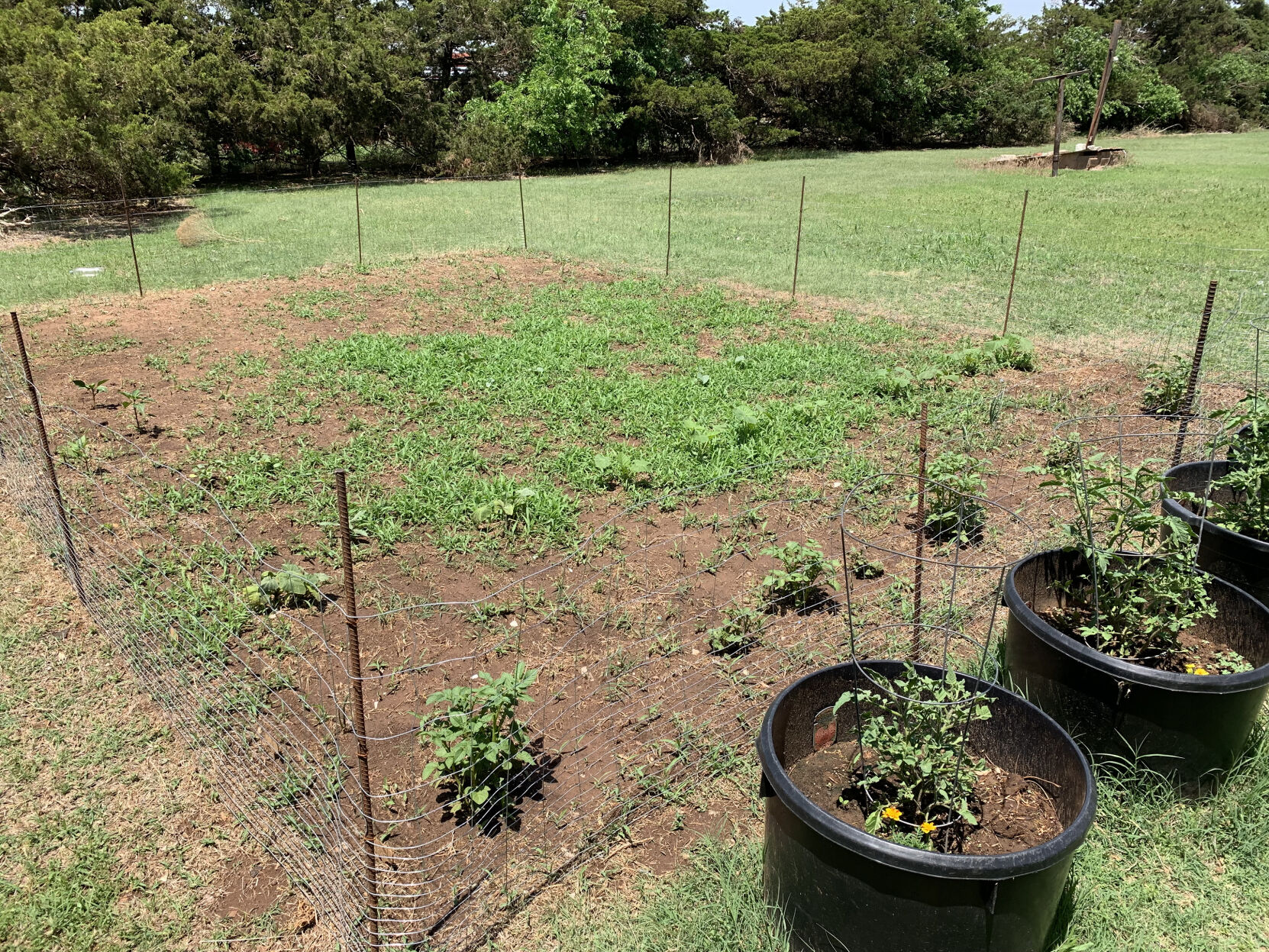Recently I was watering my vegetable garden, all the while wondering if the mostly failed vegetation was worth the time of holding the hose for 15 minutes with flies, gnats and mosquitoes taking turns pestering me. I love to garden, and while I mostly tend to flowers, I have done well with vegetables the last few years.
Last fall I married a farmer and moved out to the country where I expected my vegetable garden to be bigger and even more bountiful. My dryland farmer husband, Landon, even said, “We’ve got irrigation, it can’t fail!”
In early spring we tilled up a nice spot in the backyard, took soil samples—which Landon later said were some of the most fertile samples he’s ever received, and I eagerly awaited the warm weather. I was even imagining myself carrying a basket out to the garden every day just to harvest the veggies—in retrospect I was probably building it up a bit. We planted corn, beans, peas, tomatoes, potatoes, strawberries, lettuce, okra, squash, melons, onions and peppers with excitement for our future harvest, and then we were met with challenge after discouraging challenge.
I can’t keep up with the weeds, the bugs keep chowing down on the foliage, diseases keep popping up, rabbits don’t have any sense of boundaries and my pesky rooster can’t seem to keep his beak away from my tomatoes. I water every day, but it still looks pitiful. For a time, I thought a few corn plants had survived whatever pathogen had been killing them after they sprouted, only to find out it was just Johnson grass incognito. To put the cherry on top, I decided to examine the progress of my onions last night only to find out there was nothing under the stems when I dug them up. Nothing. I thought the onions were one of the vegetables that was surviving. The only plants that look decent are the potatoes and yellow squash, but I’m sure the squash and potato bugs are en-route. However, as I was examining our depressing garden, I started to ponder what our world food supply would be like if farmers couldn’t overcome the obstacles I encountered in my little garden with the scientific advancements available to them.
For example, what if farmers couldn’t plant treated corn? If I had used treated corn rather than a packet of seeds from the local farm store, it probably wouldn’t have contracted a disease. Farmers would be in a heap of trouble if insecticides and herbicides had not been developed to ward off pests and undesirable weeds. Imagine a world where every year farmers’ crops looked the same way my garden looks right now. Much of the world is fighting a global food shortage right now due to the war in Ukraine and drought, but apart from that, try to visualize the food crisis we’d be in if farmers couldn’t use the practices that have allowed them to increase yield and quality.
Let me be clear, there is nothing wrong with organic food production; it’s another market farmers can and should tap into, but anyone who believes farmers can sustain the global food needs without the use of the incredible developments made in agriculture, needs a reality check. Those who disagree with me only need to grab a spade and start a vegetable garden to come to the same conclusion.
Lacey Vilhauer can be reached at 620-227-1871 or [email protected]




